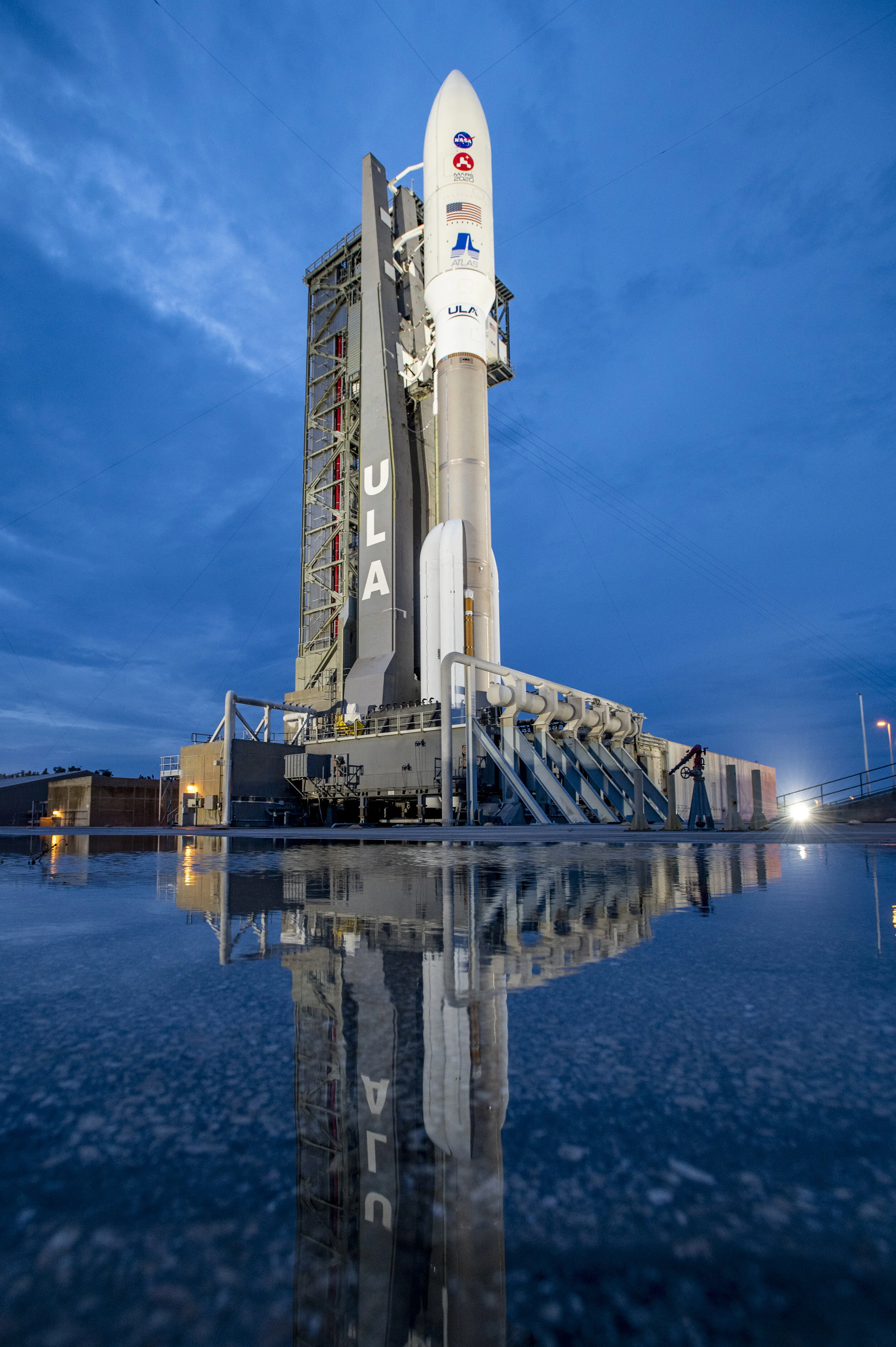Colorado Seeks to Secure Space Command as State’s Aerospace Industry Continues to Rise
At 1:55 p.m. MST on February 18, 2021, the Perseverance Rover touched down at the Jazero Crater on the Martian surface after a nearly seven-month journey through space.
Perseverance touches down on the Martian surface. Credit: NASA/JPL-Caltech
The Perseverance will spend at least one Martian year on the planet’s surface, searching for signs of habitability and past microbial life, collecting samples, and testing oxygen production from the Martian atmosphere to pave the way for human exploration.
With the Perseverance Rover now about 300 million miles away from Earth, its successful launch and landing can be attributed in part to the efforts of three Colorado companies that manufactured components essential to the mission. Among these are the United Launch Alliance, which built the rocket and launched the mission from Cape Canaveral, Florida, on July 30, 2020; Lockheed Martin, which manufactured the aeroshell that protected the rover in its spaceflight and descent; and Sierra Nevada Corporation, which built the braking mechanisms that lowered the rover to the Martian surface.
Along with other aerospace giants such as Ball Aerospace, Boeing, Maxar/DigitalGlobe, Harris Corporation, Northrop Grumman, Raytheon, Teledyne, and Brown Engineering, these companies comprise a segment of a larger aerospace industry in Colorado, the growth of which has outpaced the national average by nearly 10 percent over the past five years and which is second only to California in terms of private aerospace employment.
In the aggregate, over 280 aerospace companies directly employ more than 30,000 people in Colorado, while the state boasts over 190,000 space-related jobs. Paired with five strategic military commands, plus the National Oceanic and Atmospheric Administration’s Space Weather Prediction Center, Colorado’s concentration of civil and military aerospace industries led the state to launch its Aerospace Alley initiative in October 2020, which seeks to brand the state of Colorado as an aerospace leader and to establish ambassadors to direct the industry’s growth.
The United Launch Alliance Atlas V rocket and Mars 2020 mission with the Perseverance Rover sit on Space Launch Complex 41 (SLC-41) at Cape Canaveral at sunset. Credit: United Launch Alliance.
When President Trump announced the establishment of the U.S. Space Force (USSF) in December 2019, the Peterson Air Force Base in Colorado Springs, which has housed the Air Force Space Command since 1982, became the provisional base for the newly designated U.S. Space Command of the USSF.
Given the history of the base as host to Space Command and the state’s strong emphasis on growing the aerospace industry, there was an expectation that Colorado would remain home to Space Command at the conclusion of the provisional term, which ends in 2023. However, on January 13, 2021, President Trump announced plans to relocate Space Command to Huntsville, Alabama, in what has been widely reported as a decision based upon favoring political allies.
In a joint response of the legislature dated January 15, 2021, Colorado lawmakers submitted a plea to the incoming Biden administration to reconsider Trump’s “irresponsible decision and [] rightly conclude that it is the correct decision to keep the existing United States Space Command in Colorado” permanently. If moved to Alabama, Colorado lawmakers warned of a “major upheaval in existing infrastructure and jobs in the state, which will result in higher costs and less efficient outcomes for the United States military” and highlighted the state’s contributions to global positioning systems (GPS), spacecraft, launch vehicles, satellites, command and control software, sensors, and navigation operations developed and manufactured by Colorado companies.
Following a call from Colorado Representative Doug Lamborn to investigate Trump’s decision to relocate the U.S. Space Command headquarters, the Office of the Inspector General at the Department of Defense announced on February 19, 2021 that it would begin an evaluation of the basis for selecting Huntsville, Alabama as the preferred permanent location of the headquarters.
According to a memorandum from the secretary of the Air Force, the investigation will focus on whether the Department of the Air Force complied with Department of Defense and Air Force policies during the location selection process; whether it used objective and relevant scoring factors to rank the six finalist locations; and whether it calculated the cost and other scoring factors accurately and consistently among the six finalist locations.
The investigation is set to begin in February 2021, but no end date has been projected. The Inspector General is accepting additional recommendations for investigation objectives.


